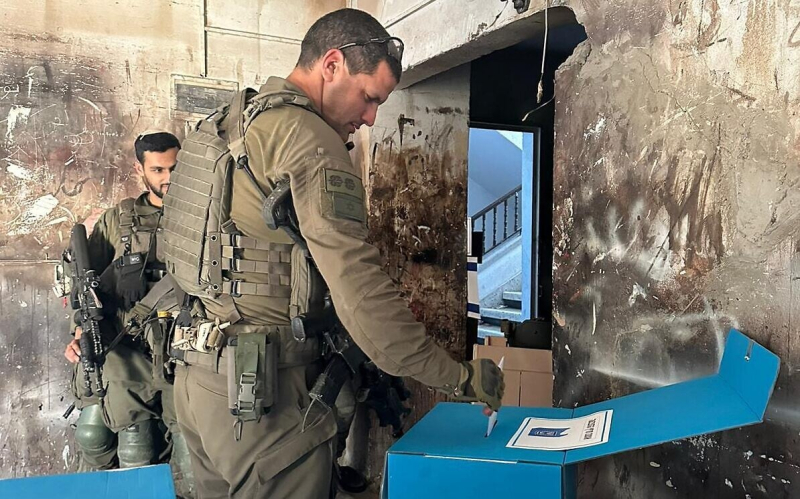- EC asks printing presses not to print election posters |
- Protect your votes, conspiracies still on: Tarique to voters |
- US ambassador warns of China's growing manufacturing dominance |
- PKSF, BARC join hands to boost agricultural research and growth |
- Govt Officials Barred From Backing ‘Yes’ or ‘No’ in Vote |
Israel holds municipal elections delayed by Gaza war

Israelis vote Tuesday in twice-postponed municipal elections that could offer a gauge of the public mood nearly five months into the war against Hamas in the Gaza Strip.
Soldiers had already turned out over the past week at special polling stations set up in army encampments in Gaza as fighting rages on.
More than seven million people are eligible to cast ballots in the local elections, held across most of Israel, in Jewish settlements in the occupied West Bank, Jerusalem and parts of the annexed Golan Heights, reports BSS.
The vote, first scheduled for October 31, has been pushed back to November 2024 in towns and villages bordering the besieged Gaza Strip or Lebanon, where Hamas ally Hezbollah has fired rockets at Israel almost daily since the start of the Gaza war.
Nearly 150,000 Israelis have been displaced by hostilities in those areas.
The elections were delayed nationwide in the aftermath of Hamas's October 7 attack on southern Israel which resulted in the deaths of at least 1,160 people, most of them civilians, according to an AFP tally based on official figures.
The subsequent Israeli military operation against Hamas has killed at least 29,782 people in Gaza, most of them women and minors, according to the Hamas-run territory's health ministry.
Two candidates for council chiefs in Gaza border areas were killed in the October 7 attack: Ofir Libstein in Kfar Aza and Tamar Kedem Siman Tov, who was shot dead at her home in Nir Oz with her husband and three young children.
In several major cities such as Jerusalem, far-right and ultra-Orthodox Jewish candidates aligned with Prime Minister Benjamin Netanyahu's political allies are running against government critics and more moderate candidates.
Netanyahu has faced increasing public pressure over the fate of hostages still held in Gaza, and from a resurgent anti-government protest movement.
- National springboard -
Tel Aviv's mayor of 25 years, Ron Huldai, seeks re-election in a race against former economy minister Orna Barbivai and lawyer Amir Badran, who hopes to become the Israeli commercial hub's first Arab mayor but faces long odds.
If elected, Barbivai would be the first woman in the job.
In Jerusalem, another Arab lawyer, Walid Abu Tayeh, had announced he would run but ultimately did not submit his candidacy.
The elections for municipal and regional councils are largely seen as local affairs, though some races can become springboards for politicians with national ambitions.
Opposition leader Yair Lapid, who had a brief stint as prime minister before Netanyahu returned to power in late 2022, said Tuesday's vote shows "there is no problem" holding elections even during the war.
In a post on social media platform X, Lapid called for parliamentary elections "as soon as possible" to replace Netanyahu.
Voter turnout in the last round of local elections, held in 2018, stood at 59.5 percent, lower than any of Israel's five parliamentary elections since 2019.
Most Palestinians in east Jerusalem, seized by Israel in 1967 and later annexed, have the right to vote in municipal elections but not legislative contests.
Palestinian residents make up around 40 percent of the city's population, but many of them have repeatedly boycotted municipal elections.
Initial results are expected starting late Tuesday, and in inconclusive races, a second round of voting is scheduled for March 10.

